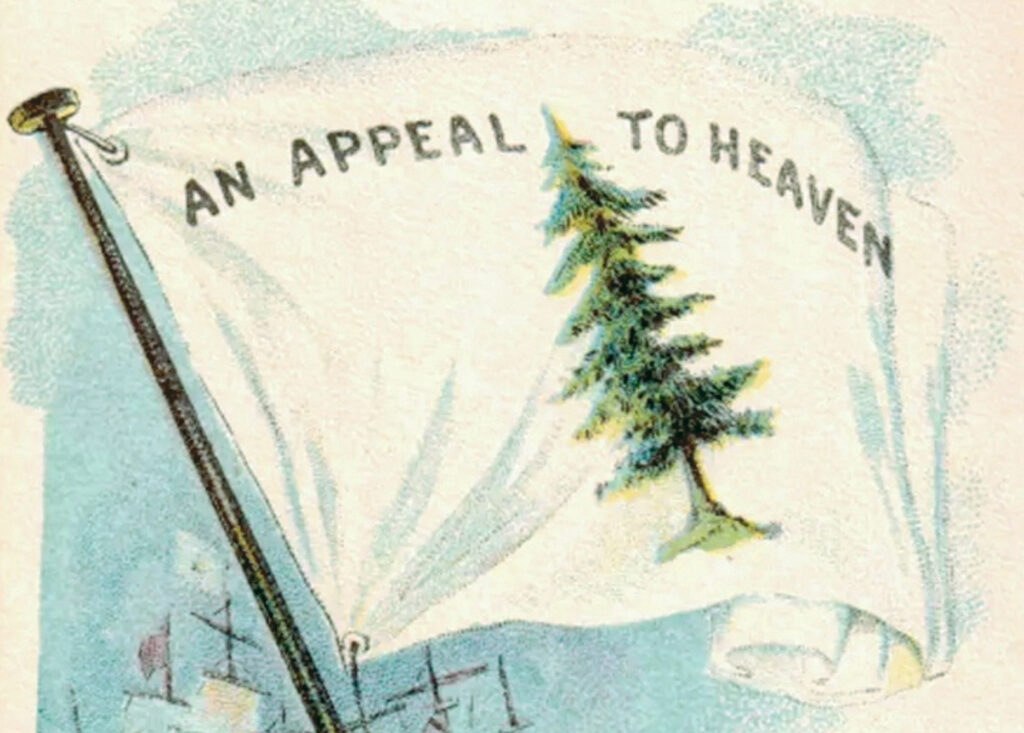
The Appeal to Heaven flag with a white background and eastern pine tree depicted in the center is a historical American flag that began use in 1775 during the American Revolution. The Appeal to Heaven flag, the Grand Union flag, the Gadsden flag and the Betsy Ross flag were some of the flags flown over the American Colonies during the Revolutionary War.
The Appeal to Heaven flag represented the rights of a free people to appeal to God/Divine Providence/Supreme Judge of the Universe (names for God used in the Declaration of Independence) to secure their freedom from Great Britain.
George Washington, as commander of the Colonial Militia in 1775, commissioned six cruiser ships. He had his secretary, Col. Joseph Reed, design a flag to be flown on those ships to distinguish the Continental Army’s navy from Britain’s. The Appeal to Heaven flag was born.
It was used to muster troops before the Stars and Stripes was adopted by Congress. The same flag was used by the Massachusetts navy in 1776 on 25 ships that participated in the Revolutionary War. Massachusetts also had a militia that flew a similar flag with an Appeal to God phrase.
The phrase “appeal to heaven” originated from English philosopher John Locke’s second Treatise on Government (1690).
Locke reasoned that when all recourse and diplomacy has failed between a people and their government, “when justice has been defiled or is noticeably biased … then it is incumbent on a free people to make an appeal to heaven for the preservation of their freedom and their inalienable rights which originate from God, not government.”
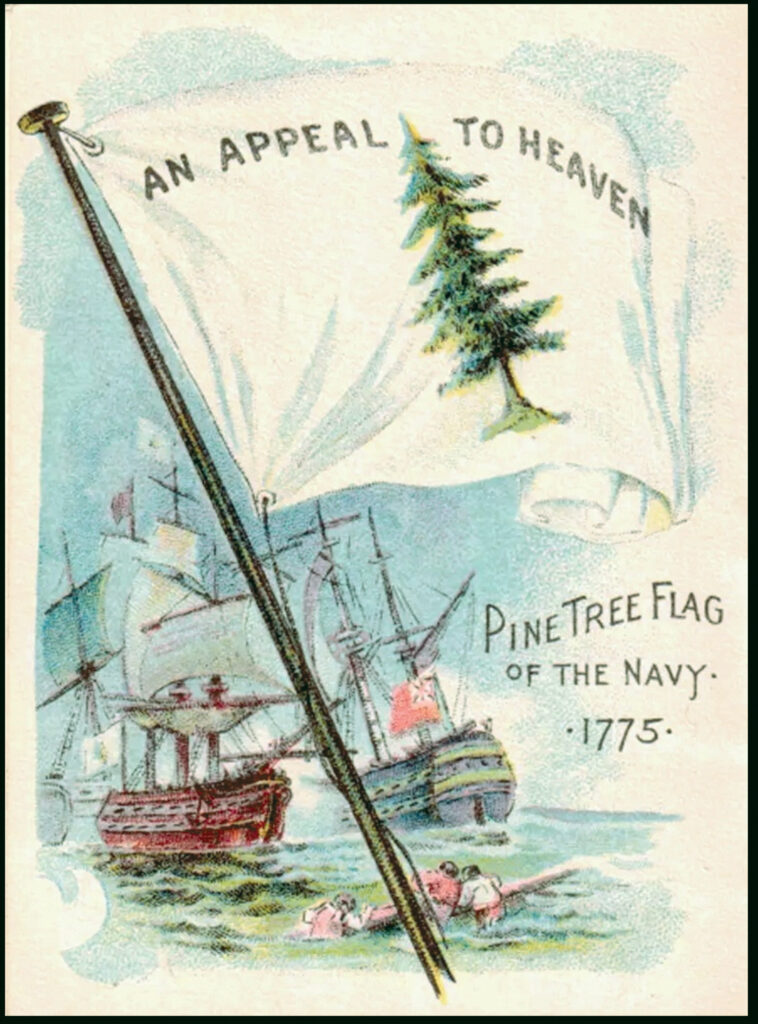
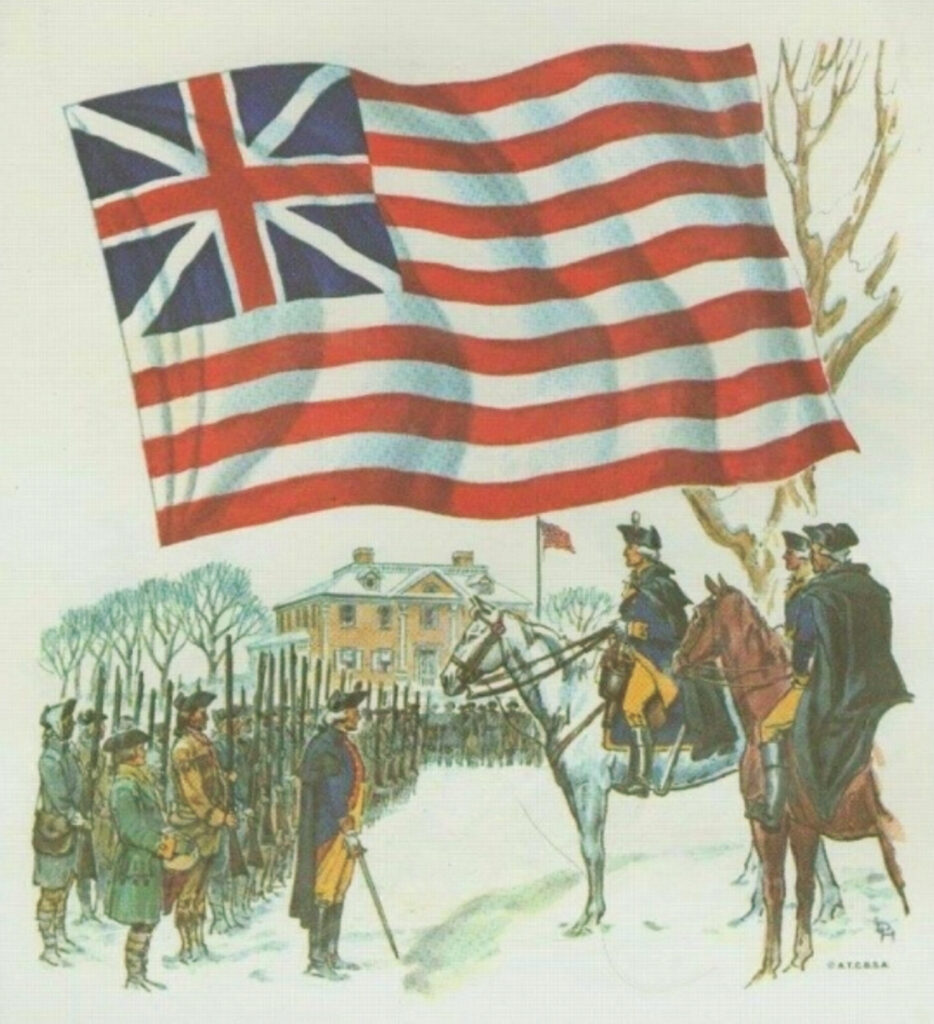
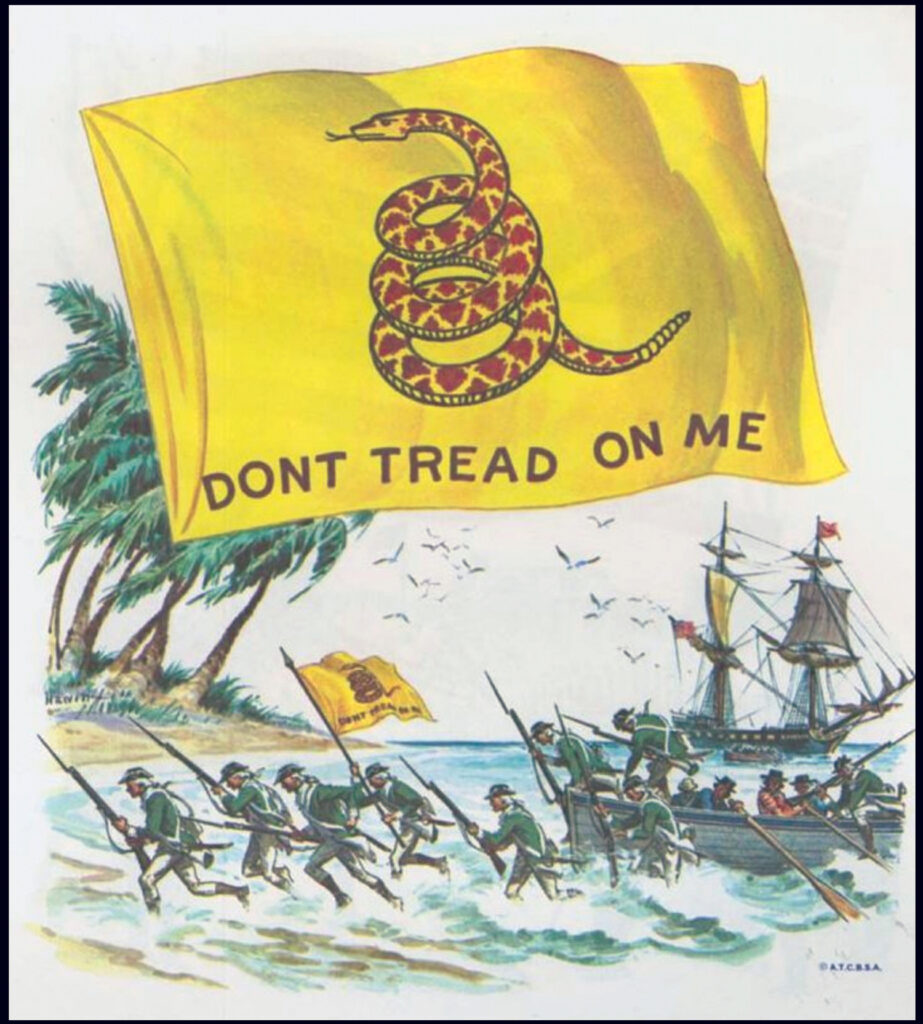
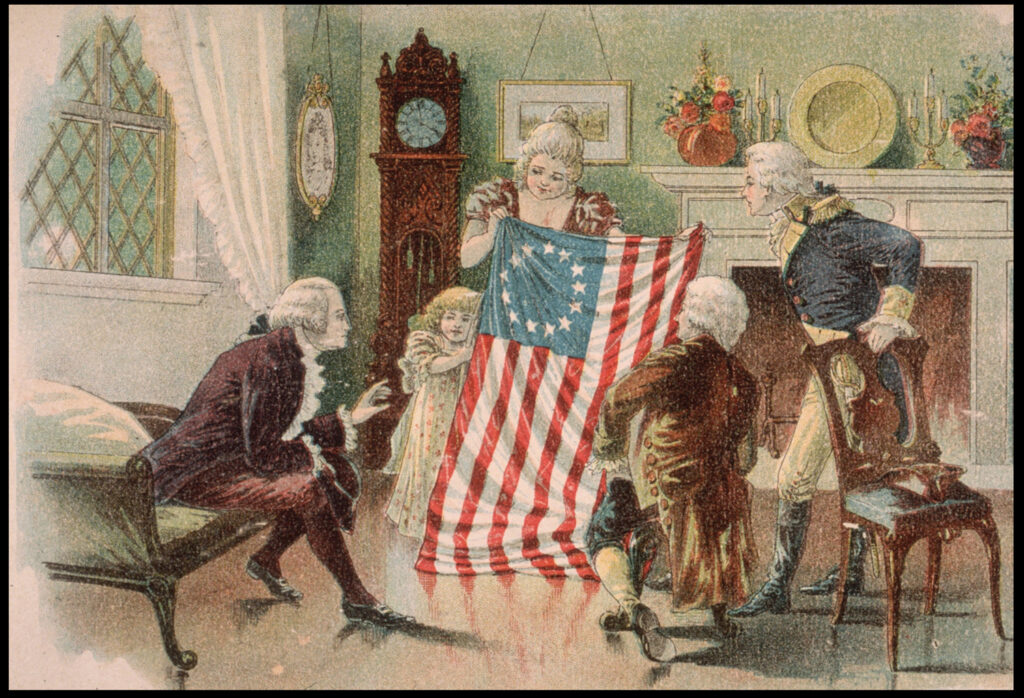
Since 93 percent of the Declaration of Independence’s signers were practicing Christians, this was not a far-fetched concept. Due to the small size of America’s militia moving against the most formidable military in the world at the time and given that American leaders had exhausted all attempts for rational solutions and diplomacy, the flag represented the final appeal for the preservation of the Colonies, their autonomy and liberties.
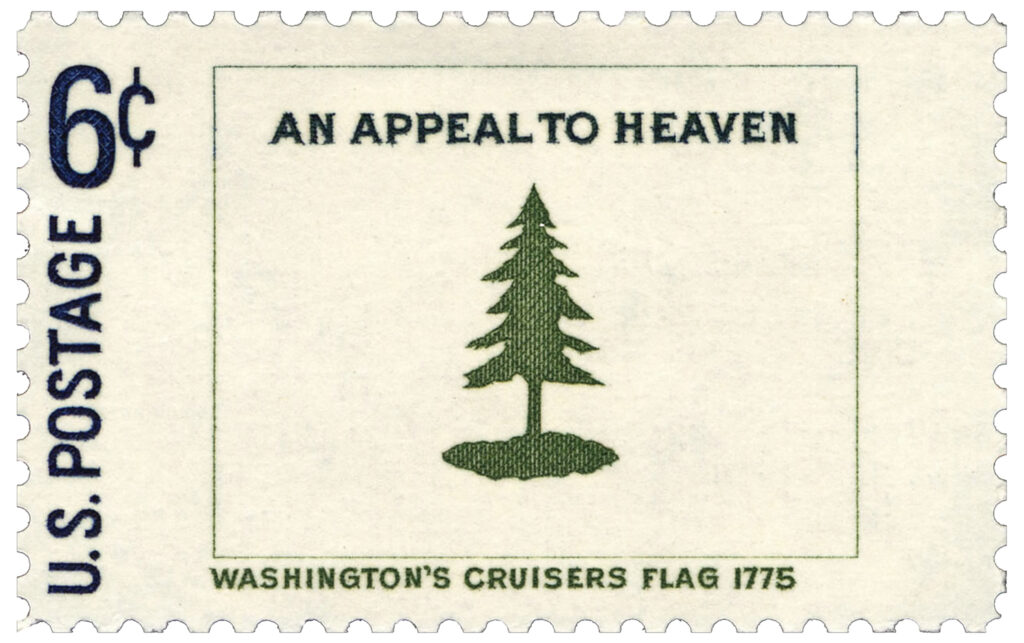
A 1785 painting by Jonathan Trumbull of events of the Battle of Bunker Hill shows the Appeal to Heaven flag, the first official flag of Massachusetts.
The pine tree depicted in the center of the flag held meaning. The northern Colonies held rich forests full of eastern pines. The height of the trees (up to 200 feet) and the quality of the timber made them a valuable commodity. Britain restricted the colonists’ use of eastern pine forests, demanding the harvest for masts for their warships over the colonists’ stringent objections.
The evergreen tree is a symbol of resilience and hope, of everlasting life through the blood of Jesus Christ on the cross, and inspires hope, faith, and freedom, especially in a situation where the odds are against you. Because of the successful and humble appeal to heaven for assistance in the pursuit of liberty against the oppressive King George III that resulted in God’s favor of the Americans during the Revolutionary War, America is a free nation today.
The American forefathers gave their lives, their fortunes and sacred honor. They trusted God and appealed to heaven to overcome seemingly insurmountable odds so their generation and all future generations could live free to exercise their liberties.
Katie Gates is a Biblical Citizenship Coordinator.
